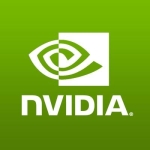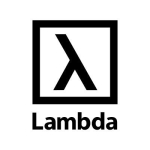
Solutions Architect & PMO at a media company with 501-1,000 employees
Has greatly improved efficiency in analyzing customer support calls
Pros and Cons
- "Amazon Bedrock is an artificial intelligence engine that allows me to upload analyses of the quality of customer support calls."
- "Amazon Bedrock is quite highly scalable, but there are some limitations they impose on the accounts, which could be an area for improvement."
What is our primary use case?
I am using Amazon Bedrock mainly to do some analysis of customer support calls.
What is most valuable?
Amazon Bedrock is an artificial intelligence engine that allows me to upload analyses of the quality of customer support calls. It provides summaries and evaluations of the agents, thereby offloading a lot of work. Furthermore, it has improved operational costs and efficiency significantly, saving money and enhancing the quality of operations.
What needs improvement?
Currently, I do not have any thoughts about what areas of Amazon Bedrock need improvement.
For how long have I used the solution?
I have about a year or maybe less experience with Amazon Bedrock. It has been less than a year.
Buyer's Guide
Amazon Bedrock
February 2026
Learn what your peers think about Amazon Bedrock. Get advice and tips from experienced pros sharing their opinions. Updated: February 2026.
881,733 professionals have used our research since 2012.
What do I think about the stability of the solution?
I would rate the stability as about eight. I haven't really had any problems.
What do I think about the scalability of the solution?
I would rate the scalability as six or seven. Amazon Bedrock is quite highly scalable, but there are some limitations they impose on the accounts, which could be an area for improvement.
How are customer service and support?
The technical support is quite high quality; I would rate it as an eight.
How would you rate customer service and support?
Positive
How was the initial setup?
The initial setup of Amazon Bedrock is quite straightforward.
What's my experience with pricing, setup cost, and licensing?
The pricing and licensing of Amazon Bedrock are quite flexible.
What other advice do I have?
Based on my experience with Amazon Bedrock, I would recommend this solution to other customers. I would rate Amazon Bedrock overall as an eight because it is quite a good solution.
Which deployment model are you using for this solution?
Public Cloud
If public cloud, private cloud, or hybrid cloud, which cloud provider do you use?
Disclosure: My company has a business relationship with this vendor other than being a customer. Partner
Assistant Manager - Sales at a outsourcing company with 1,001-5,000 employees
Customization and no-code capabilities empower image generation and chatbot solutions
Pros and Cons
- "The no-code application of the service is beneficial since it allows creating solutions without extensive coding knowledge."
- "Overall, I rate Amazon Bedrock ten out of ten."
- "The user interface of Amazon Bedrock on the management console needs improvements."
- "The user interface of Amazon Bedrock on the management console needs improvements. It's very bland at the moment."
What is our primary use case?
I work with an AWS partner, and we offer cloud managed services to our clients as well as reselling services. I've worked with Amazon Bedrock to create solutions, including an image generation solution and a chatbot for an ERP application for schools.
What is most valuable?
The ability to make changes in the foundational model is valuable since different customers have specific needs, allowing customization.
Additionally, the no-code application of the service is beneficial since it allows creating solutions without extensive coding knowledge.
What needs improvement?
The user interface of Amazon Bedrock on the management console needs improvements. It's very bland at the moment.
For how long have I used the solution?
I haven't worked with Amazon Bedrock for a long time. It took approximately one or two weeks to create a simple image generation solution.
What do I think about the stability of the solution?
I haven't had any complaints from any customers, so I rate the stability as ten out of ten.
What do I think about the scalability of the solution?
I rate the scalability as an eight out of ten, however, I am not able to provide specific reasons.
How are customer service and support?
We did not require any support from Amazon, so I rate it ten out of ten since there were no complaints.
How would you rate customer service and support?
Positive
How was the initial setup?
The initial setup was rated six out of ten due to some challenges faced by the presales team during the setup.
What's my experience with pricing, setup cost, and licensing?
The price of Amazon Bedrock is a little costly, rated six or seven out of ten. One customer paid around $100 to $200 per month, which was significant given their overall infrastructure costs.
What other advice do I have?
You should be well-versed in AI ML to use Bedrock properly.
Overall, I rate Amazon Bedrock ten out of ten.
Disclosure: My company has a business relationship with this vendor other than being a customer. partner
Buyer's Guide
Amazon Bedrock
February 2026
Learn what your peers think about Amazon Bedrock. Get advice and tips from experienced pros sharing their opinions. Updated: February 2026.
881,733 professionals have used our research since 2012.
Data Scientist at a marketing services firm with 1-10 employees
Diverse models offer tailored insights
Pros and Cons
- "The most beneficial aspect of Bedrock is its pool of models to choose from, catering to specific needs."
- "Bedrock could be improved by having an API that allows for easy integration with services outside of Bedrock."
What is our primary use case?
The primary use case of Bedrock is for creating large language models and deploying pretrained models. It is used for generating AI-driven solutions like text summarization, image creation, or text creation. It also incorporates a knowledge base allowing companies to use their own data to gain insights.
How has it helped my organization?
Bedrock helps by providing more clarity and improving the efficiency of tasks through quicker solutions to problems. The scalability aspect benefits my project because I can choose different models based on their specialties and because it has connections to other AWS services. This integration allows seamless operation within the AWS platform.
What is most valuable?
The most beneficial aspect of Bedrock is its pool of models to choose from, catering to specific needs. Additionally, the knowledge base allows companies to connect their data and gain insights tailored to their specific requirements.
What needs improvement?
Bedrock could be improved by having an API that allows for easy integration with services outside of Bedrock.
For how long have I used the solution?
I have been working with Bedrock for close to a year now.
What do I think about the stability of the solution?
Bedrock is stable, and I have found it to be so in my experience.
What do I think about the scalability of the solution?
Bedrock is scalable, allowing the use of different models based on specific needs. The scalability benefits my project through the ability to integrate with different AWS services without leaving the platform.
How are customer service and support?
I have not interacted with customer service or support as I have not had any need for it.
How would you rate customer service and support?
Positive
Which solution did I use previously and why did I switch?
I have used Gemini and Llama as an API previously.
How was the initial setup?
The initial setup was straightforward and took about five minutes to complete.
What was our ROI?
Since using Bedrock, benefits include time and resource savings, as it is not expensive and offers similar functionality as individual models based on requests and tokens.
What's my experience with pricing, setup cost, and licensing?
The pricing and licensing cost is fairly reasonable. It is not expensive.
Which other solutions did I evaluate?
I have experience working with AI infrastructure solutions from Google and Azure, namely Gemini and Llama as an API.
What other advice do I have?
Bedrock is a comprehensive solution that provides everything needed on one platform. It allows for flexibility and scalability, letting users explore different options without needing external resources.
I'd rate the solution eight out of ten.
Which deployment model are you using for this solution?
Public Cloud
If public cloud, private cloud, or hybrid cloud, which cloud provider do you use?
Amazon Web Services (AWS)
Disclosure: My company does not have a business relationship with this vendor other than being a customer.
Founder at a consultancy with 1-10 employees
Enhancing team efficiency with practical AI integration but needs better scaling optimization
Pros and Cons
- "Amazon Bedrock is easy to use and practical, allowing for quick development."
- "It would be beneficial if Bedrock were optimized for hyperscale use to avoid needing a mixed approach with SageMaker."
What is our primary use case?
The primary use case for Amazon Bedrock is to integrate AI capabilities into a client's offerings. It helps clients quickly incorporate AI into their products to enhance analytics and increase AI functionalities.
How has it helped my organization?
The implementation of Bedrock has reduced the time and manpower required for processing cases, thereby increasing the efficiency and happiness of the team. It allows the team to focus on more challenging and rewarding tasks instead of mundane ones, ultimately increasing productivity.
What is most valuable?
Amazon Bedrock is easy to use and practical, allowing for quick development. It is simple to integrate company data, which helps in producing AI outputs that can be traced back to actual data. Additionally, it's beneficial because clients' teams can be involved in the process, leading to greater trust in the models developed.
What needs improvement?
It would be beneficial if Bedrock were optimized for hyperscale use to avoid needing a mixed approach with SageMaker. Moreover, the number of integration points and marketplace availability is quite limited, which could be improved as Bedrock matures.
For how long have I used the solution?
Bedrock has been used for around three months, with a month spent learning and keeping up with the offering.
What do I think about the stability of the solution?
The performance has been stable, with no significant changes in processing time for both simple and complex tasks.
What do I think about the scalability of the solution?
For the current scale of deployment, Bedrock is reasonable. However, there are concerns about challenges when aiming for hyperscale, which might require a different approach, such as detaching the model from Bedrock and deploying it separately.
How are customer service and support?
I haven't needed to escalate any queries to AWS support. Instead, minor issues were resolved through direct communication with a personal contact at AWS.
How would you rate customer service and support?
Neutral
Which solution did I use previously and why did I switch?
SageMaker was used previously, but it was complicated to integrate into the team’s process since the team was not highly proficient in machine learning.
How was the initial setup?
The initial setup of Bedrock was easy and fast. However, the major time-consuming aspect is determining the privacy and security guardrails for the data in collaboration with the business side.
What about the implementation team?
The deployment involved a relatively small team of five people, including two with technical purposes and one analyst.
What was our ROI?
Using Bedrock has reduced the manual intervention required for case processing from forty to forty-five percent to twenty-five percent, significantly decreasing time and human resources. The cost of Bedrock is covered by the savings realized from this increased efficiency.
What's my experience with pricing, setup cost, and licensing?
The pricing for Bedrock is considered reasonable given the features and the savings from reduced costs compared to not using Bedrock.
Which other solutions did I evaluate?
I have begun exploring Azure's offering, but haven't dived deep. Google's solutions haven't been tested beyond personal experiences with Gemini, which were not satisfactory. OpenAI offerings, especially ChatGPT, are used for personal projects.
What other advice do I have?
Bedrock is a service that is easy to implement but is suitable for specific use cases. Ensure that the use case aligns with Bedrock’s capabilities before committing. Quick sandbox testing is recommended to validate its applicability.
I'd rate the solution seven out of ten.
Which deployment model are you using for this solution?
Public Cloud
If public cloud, private cloud, or hybrid cloud, which cloud provider do you use?
Amazon Web Services (AWS)
Disclosure: My company has a business relationship with this vendor other than being a customer. Implementer
Data Scientist
Harnessing pre-trained AI models with cost efficiency in mind
Pros and Cons
- "The integration with pre-trained AI models has been very beneficial, allowing me to quickly access powerful machine learning models without the need to build them from scratch."
- "While working with Bedrock, I incurred charges that were not explicitly mentioned in the pricing documentation."
What is our primary use case?
I have used Amazon Bedrock to create knowledge bases for a machine learning project. This is my primary use case.
What is most valuable?
The integration with pre-trained AI models has been very beneficial, allowing me to quickly access powerful machine learning models without the need to build them from scratch.
Additionally, the availability of models such as NLP and image recognition aids in focusing on building applications rather than starting with complex machine learning workflows.
The ability to access pre-trained models easily and the serverless nature of Bedrock, where you only pay for what you use, makes it cost-efficient.
It's integration with services like Amazon S3 and AWS Lambda simplifies data storage, retrieval, and the automation of analysis tasks.
What needs improvement?
While working with Bedrock, I incurred charges that were not explicitly mentioned in the pricing documentation. Amazon could provide a more detailed explanation of the costs, including upfront pricing information and examples of common cost scenarios, which would help people starting out with these services to make informed decisions and avoid unexpected expenses.
For how long have I used the solution?
I have used Amazon Bedrock for three months.
What do I think about the stability of the solution?
Amazon Bedrock is able to handle increasing workloads without compromising performance, which demonstrates high stability. I would rate its stability a nine out of ten.
What do I think about the scalability of the solution?
The scalability of Bedrock is quite seamless with the volume of data. When the data increases, the scalability also increases. I would rate the scalability an eight point five out of ten.
How are customer service and support?
The support was really helpful and responsive. The team assisted me effectively with the challenges I faced, and I would rate customer service ten out of ten.
How would you rate customer service and support?
Positive
Which solution did I use previously and why did I switch?
Before Bedrock, I usually created machine learning models from scratch which was time-consuming and required substantial resources. I chose Bedrock because it fits within the AWS ecosystem I was already using.
How was the initial setup?
The initial setup of Amazon Bedrock is user-friendly, especially if you are familiar with the AWS ecosystem. While I faced challenges with unexpected charges, the setup process itself is intuitive, and I would rate it an eight out of ten.
What was our ROI?
I did not observe a return on investment, as I started incurring charges before I even deployed the model, which prevented me from seeing the benefits.
What's my experience with pricing, setup cost, and licensing?
The cost of using Amazon Bedrock is quite high, as I incurred unexpected charges amounting to $130 USD within two weeks without actually deploying the model. I would rate the pricing an eight out of ten.
Which other solutions did I evaluate?
I did not evaluate other vendors before choosing Bedrock, as it fits into the existing AWS infrastructure I was already using.
What other advice do I have?
Monitor your usage carefully with tools like Cost Explorer and Amazon CloudWatch to avoid unexpected charges. Understanding the pricing model thoroughly can prevent unforeseen expenses. I would advise new users to read the documentation fully to ensure they understand the service they are using.
I rate Amazon Bedrock a nine out of ten overall.
Which deployment model are you using for this solution?
Public Cloud
If public cloud, private cloud, or hybrid cloud, which cloud provider do you use?
Amazon Web Services (AWS)
Disclosure: My company does not have a business relationship with this vendor other than being a customer.
AWS GenAI Data Engineer at a computer software company with 51-200 employees
Plays a vital role in building a strong foundation for data pipelines by adding reasoning capabilities
Pros and Cons
- "Bedrock offers various foundational models in one place."
- "I would appreciate a greater focus on agentic Gen AI applications in Bedrock."
What is our primary use case?
Amazon Bedrock is used as a bridge between an application and a foundational Gen AI model. It enables me to use publicly available models from companies like Anthropic or Meta through Amazon or AWS. These models are hosted or borrowed by Amazon through APIs, providing a centralized place to utilize different foundational models.
Bedrock allows comparison of these models for assessing performance and effectiveness for specific use cases. In my projects, Bedrock is used in multiple stages, including data pipeline processes like data cleaning or formatting, sentiment analysis, and creating chatbots for end users. The main strength of Gen AI, which Bedrock leverages, is reasoning, significantly aiding data pipelines.
How has it helped my organization?
Bedrock plays a vital role in building a strong foundation for data pipelines by adding reasoning capabilities, often missing from backend workflows. It offers productivity enhancements by providing a playground to compare models and experiment with Gen AI applications. It also aids in clean data preparation and sentiment analysis, leading to better internal workings of applications.
What is most valuable?
First, Bedrock offers various foundational models in one place. Second, it provides customization options for these models through techniques like fine-tuning, retrieval augmented generation, and continual pre-training, which are innovative features not seen in other managed platforms. Experimentation with Gen AI using Bedrock is notably user-friendly.
What needs improvement?
I would appreciate a greater focus on agentic Gen AI applications in Bedrock. While Bedrock includes agents in its toolkit, the feature lacks complexity compared to open-source frameworks.
Additionally, the user interface for the playground could be more refined. While Bedrock is powerful, it lacks markdown formatting features seen in interfaces like ChatGPT.
For how long have I used the solution?
I have been using the Bedrock solution for approximately six months.
What do I think about the stability of the solution?
Bedrock manages scalability and reliability effectively as a serverless solution, ensuring AWS handles scalability and security.
What do I think about the scalability of the solution?
Bedrock automatically scales, with AWS handling scalability concerns. Users are responsible for data security at the application level, but AWS provides features to support this.
How are customer service and support?
The AWS technical support was quick to respond, even under a basic support plan, and deserves an eight rating.
How would you rate customer service and support?
Positive
Which solution did I use previously and why did I switch?
I have worked with LangChain and its agentic framework, LandGraph. However, these do not provide managed services like Bedrock.
How was the initial setup?
Initially, navigating the AWS console for Bedrock was somewhat confusing with multiple clicks needed to reach the required features. However, after regular use, it has become part of my routine and is no longer an issue.
What was our ROI?
Bedrock offers a very high return on investment due to its cost-efficiency. It uses a pay-for-what-you-use model, allowing experimentation with foundation models at a low cost.
What's my experience with pricing, setup cost, and licensing?
Using Bedrock is inexpensive for experimenting with foundation models compared to managed services from other companies hosting these models.
Which other solutions did I evaluate?
LangChain and LandGraph, although not providing managed services like Bedrock.
What other advice do I have?
I recommend Bedrock to anyone entering the Gen AI field or considering experimenting with Gen AI. Its cost-effectiveness makes it ideal for experimentation.
I'd rate the solution nine out of ten.
Which deployment model are you using for this solution?
Public Cloud
If public cloud, private cloud, or hybrid cloud, which cloud provider do you use?
Amazon Web Services (AWS)
Disclosure: My company has a business relationship with this vendor other than being a customer. Partner
Architect at a tech services company with 5,001-10,000 employees
Flexible and comprehensive solution enhances AI integration
Pros and Cons
- "The valuable feature of Bedrock is its flexibility and comprehensiveness in what it's offering, providing parameters that we can change."
- "One area for improvement is in cost—it tends to be a bit on the higher side, especially for enterprise versions."
What is our primary use case?
We use Bedrock primarily for its LLM (Large Language Model) capabilities. It serves our needs related to artificial intelligence solutions, including capabilities related to LLM.
How has it helped my organization?
Bedrock has been stable and works seamlessly as part of AWS services. Collaborating with it means we can easily integrate solutions however needed, and it's useful as we understand AWS's standard way of operating.
What is most valuable?
The valuable feature of Bedrock is its flexibility and comprehensiveness in what it's offering, providing parameters that we can change. This differs from Kendra, which doesn't allow parameter adjustments.
What needs improvement?
One area for improvement is in cost—it tends to be a bit on the higher side, especially for enterprise versions. Furthermore, it lacks certain AI capabilities, such as supporting voice and images.
For how long have I used the solution?
We have been using Bedrock for two to three months.
What do I think about the stability of the solution?
Over the past three months, the solution has been absolutely stable with no issues.
What do I think about the scalability of the solution?
Bedrock is scalable. However, there are inherent limitations such as rate per limits and token limits which are standard for LLMs, and we are aware of them.
How are customer service and support?
Technical support from Amazon is satisfying, though Text and Kendra could use improvements. Both are like black boxes with limitations in parameters that could be controlled.
How would you rate customer service and support?
Positive
How was the initial setup?
The initial setup of Bedrock is straightforward, and no significant issues were encountered during deployment.
What about the implementation team?
I can manage the setup independently and do not require an extensive team for installation.
What's my experience with pricing, setup cost, and licensing?
The licensing and overall pricing of Bedrock are competitive compared to other providers like Azure. However, LLM solutions can be expensive when opting for enterprise versions.
What other advice do I have?
The integration is seamless, and given the LLM limitations are known, it allows us to plan and manage accordingly. Awareness of cost implications might be necessary.
I'd rate the solution ten out of ten.
Which deployment model are you using for this solution?
Public Cloud
If public cloud, private cloud, or hybrid cloud, which cloud provider do you use?
Amazon Web Services (AWS)
Disclosure: My company has a business relationship with this vendor other than being a customer. Integrator
Full-stack Developer - Node | Android | AWS | Java at a tech company with 11-50 employees
Enhance vector search with secure features and room for documentation improvements
Pros and Cons
- "The most valuable feature of Bedrock is its security and the model's ability to modify vector dimensions easily."
- "There is a need for improved documentation, smoother integration, and possibly reduced prices given the competition."
What is our primary use case?
The primary use case for Bedrock involved using Bedrock for vector embeddings to have a data store for my RAG application. Bedrock was used during a project where vectorized data was needed for one of the products.
How has it helped my organization?
Bedrock has simplified the process by offering secure usage and the ability to modify vector dimensions easily. This is beneficial for building applications that work with language learning models and vector search.
What is most valuable?
The most valuable feature of Bedrock is its security and the model's ability to modify vector dimensions easily. This is particularly helpful for vector embedding and vector search applications.
What needs improvement?
There is a need for improved documentation, smoother integration, and possibly reduced prices given the competition. I would also like to see more automated integration systems and features.
For how long have I used the solution?
I used Bedrock for the first time last year, during a project that required vectorized data.
What do I think about the stability of the solution?
It is reliable and stable, which aligns with the reputation of AWS products.
What do I think about the scalability of the solution?
While I have used other AWS products for scaling, I have not scaled Bedrock on a large scale. However, AWS is trusted for its scalability.
Which solution did I use previously and why did I switch?
I have used other AWS products and solutions like OpenAI, which have their benefits and compete with Bedrock.
How was the initial setup?
The initial setup can be a bit complex compared to other solutions like OpenAI, however, AWS's consistent ecosystem can be advantageous.
What's my experience with pricing, setup cost, and licensing?
The pricing should ideally be reduced given the competition. The business model could be optimized to allow users to pay only for the services they are using.
Which other solutions did I evaluate?
I mentioned evaluating competitors such as OpenAI and its models.
What other advice do I have?
I recommend Bedrock specifically if you are using other AWS products within your application, as it consolidates workflows and remains within the AWS ecosystem. If not, OpenAI might be a simpler choice.
I'd rate the solution six out of ten.
Which deployment model are you using for this solution?
Public Cloud
If public cloud, private cloud, or hybrid cloud, which cloud provider do you use?
Amazon Web Services (AWS)
Disclosure: My company does not have a business relationship with this vendor other than being a customer.
Buyer's Guide
Download our free Amazon Bedrock Report and get advice and tips from experienced pros
sharing their opinions.
Updated: February 2026
Popular Comparisons
Microsoft Azure
Oracle Cloud Infrastructure (OCI)
Google Cloud
Alibaba Cloud
Google Firebase
GroqCloud Platform
NVIDIA DGX Cloud
Tencent Cloud
Modal Labs
Lambda Stack
Baseten
Ask Sage
Buyer's Guide
Download our free Amazon Bedrock Report and get advice and tips from experienced pros
sharing their opinions.
Quick Links
Learn More: Questions:
- When evaluating Infrastructure as a Service (IaaS), what aspect do you think is the most important to look for?
- Which Commercial and Open Source Software Do You Recommend for Private Clouds?
- Gartner's Magic Quadrant for IaaS maintains Amazon Web Service at the top of the Leaders quadrant. Do you agree?
- Pros/cons of Rackspace vs. other leading vendors?
- Which virtualization platform would you recommend to a healthcare company with 1000-5000 employees?
- Are there any reasons to opt for Rackspace vs. its cloud competitors?
- IaaS Solutions: Which did you choose, and What problem(s) has the solution solved for you?
- What is the difference between IaaS, SaaS, and PaaS?
- Which cloud IaaS/PaaS platform would you recommend learning to a newbie?
- Rackspace, Dimension Data, and others that were in last year's Challenger quadrant became Niche Players: Agree/ Disagree

















